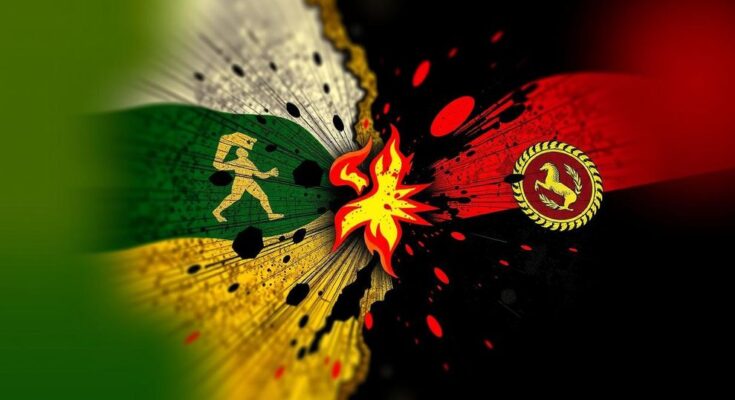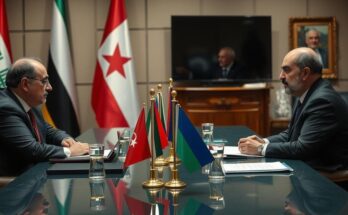Renewed violence in eastern Democratic Republic of Congo has alarmed Angola, which was urging a long-term ceasefire following a period of relative calm. The Angolan government condemned the resurgence of conflict as a violation of earlier agreements and has continued to mediate between the DRC and Rwanda. Recent clashes have raised concerns about the worsening humanitarian situation, with potential large-scale displacements expected in the coming year.
Renewed hostilities have erupted in eastern Democratic Republic of Congo (DRC), raising significant concerns for the Angolan government as they were in the midst of advocating for a long-term ceasefire. This surge in violence comes just one month after a relatively calm period, prompting Luanda to voice its discontent in a statement, highlighting the resurgence as a blatant violation of recent agreements following the ministerial meeting held on July 30 and the subsequent ceasefire that began on August 4. The Angolan government has taken a mediating role between the DRC and Rwanda—two nations historically accusing each other of harboring rebel factions intent on destabilizing their regimes. Two weeks prior to this renewed fighting, representatives from both countries convened in Luanda, reaffirming their commitment to peaceful dispute resolution. However, commitments made by Kinshasa to halt support for the FDLR, a group considered a threat by Rwanda, are contingent upon Rwanda withdrawing its support for the M23 rebels. Angola condemned the latest acts of violence, expressing that it undermines ongoing peace efforts. Angola urged all involved parties to abide by the established ceasefire, particularly as reiterated in a recent ministerial meeting on September 14. The recent clashes near the village of Kalembe have reportedly involved combat between the Wazalendo militia, which supports the Congolese army, and the M23 rebels, with localized reports suggesting a regaining of control by the Congolese army over the area. In response to the turmoil, several political figures have commented on the situation. Juvenal Munubo, a former Member of Parliament, claimed logistical support from the Congolese army aided the NDC Rénové (an armed group) in reclaiming Kalembe. Meanwhile, MP Willy Mishiki warned that the rebel factions appear intent on expanding their influence across several provinces in eastern DRC. Despite the ceasefire efforts, there has been a lack of official commentary from Kinshasa regarding the breakdown of the truce. The DRC has, thus far, precluded any dialogue with the M23, although negotiations between DRC and Rwanda are ongoing. The two countries met on October 12, where they committed to addressing security concerns in relation to a proposed peace agreement. Angola continues to advocate for peaceful resolutions to prevent exacerbating the humanitarian crisis currently afflicting eastern DRC, which has seen nearly seven million citizens displaced due to conflict. Ultimately, the latest violence has resulted in injuries to at least 14 civilians and forced many others to flee their homes. International humanitarian observers anticipate that up to 940,000 individuals may be newly displaced in 2024 alone, exacerbating an already dire situation marked by severe overcrowding and violations of human rights in conflict-affected regions of North Kivu.
The ongoing conflict in the eastern Democratic Republic of Congo has its roots in a complex interplay of historical grievances, ethnic tensions, and regional power struggles involving neighboring nations, particularly Rwanda and Uganda. Over the years, various armed groups have emerged, contributing to instability and humanitarian crises, characterized by large-scale displacement and human rights abuses. Angola has taken on a mediating role in the conflict, advocating for ceasefire agreements and fostering dialogue between the conflicting parties in an effort to stabilize the region and address humanitarian needs.
In summary, the renewed fighting in eastern DRC poses a significant threat to the fragile peace achieved over the past month, complicating diplomatic efforts by Angola and regional stakeholders aimed at fostering long-term stability. The ongoing hostilities not only violate recent peace agreements but also exacerbate the humanitarian crisis, highlighting the urgent need for effective conflict resolution strategies and collective commitment to ceasefire adherence.
Original Source: www.theeastafrican.co.ke




